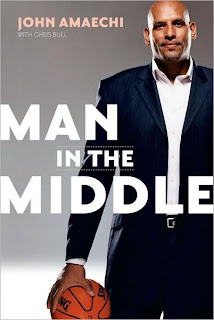So with the latest Carlos Tevez saga in full flight - twelve individual articles posted on the Guardian's football site within the past 24 hours, nine of which made their front page - it's now time to ask what, if any, value contracts still retain in football. The cynics among us will automatically say only "to maintain a player's sell-on value". It could even be worse than that.
City's Argentine thorn could keep a snit of contract lawyers employed and happy for months. (Yes, I just made up a new collective noun and I'm quite proud of it)
Essentially, Tevez's alleged refusal to play amounts to an employee telling his boss "I'm not going to go into work because I middle management isn't using me the way I want". Try that today - I dare you - and see where it gets you.
Although it must be emphasised that Tevez's "misunderstanding" story has a whiff (and it may just be that) of truth, Manchester City have little recourse other than to suspend or fine their erstwhile captain. Both are money saving moves, rather than actions which recompense Sheikh Mansour for the star's apparent immaturity.
Player's contracts should have in them clauses which state clearly that the player must play when available and selected - or face suitable legal action. When said player has the talent and earns the sums that Tevez does, withholding pay has little effect. He is now almost irreparably damaged as a City commodity - and so will be available at a more cut-price rate.
The manner in which contracts are disregarded by players who think themselves underpaid or undervalued stinks of Collective Bargaining Minimalism that somewhere, Peter Costello is getting aroused. Before Kevin Rudd's 2007 landslide election victory, it was leaked that the then-Treasurer hoped to extend the nation's "Work Choices" bill so that everything other than minimum wage was negotiable.
Gradually and with only occasional outcry, footballers' contracts have essentially evolved into the reverse. Terms and salary are locked in, but outside that it appears the individual rather than - his nominal employer - has "hand". Again, this is hardly revelatory. But it's worth pointing out that, should Tevez be sacked from his employment contract, Manchester City would:
a) not see full return on the 25.5 million transfer fee they paid to acquire his services,
b) not receive any transfer fee when seeing him play for another club,
c) have paid his now-exorbitant wages for 2-plus years,
d) allow him to leave a city he disdains without financial penalty,
e) see him the most desired free-agent in football history, able to name his wages to play at a club of his choice.
It is in Manchester City's interests to sell him, yet by announcing (as they had to) his suspension they have effectively cleaved his resale value in half. Again, they are out of pocket. The contract that Tevez signed on agreeing to play for Manchester City now so favours the player that it's outmoded and essentially worthless.
It is time for footballer's contracts to more mirror standard employment deals. Were I to compromise my employer's profitability - especially by such great sums - I would expect to be dismissed. Additionally, if there were three replacements who could do my job at equal or better standards, I should fear. Whatever option they choose to pursue - beyond retracting some of his already-paid wages, which is sketchy legally - Manchester City come out behind on this deal.
Jean-Marc Bosman must be crying into his claret - his stand was needed to change the domination that clubs held over their playing staff. Accusations of slavery are of course ridiculous, but not so ridiculous that credible sources like Sepp Blatter aren't fooled. What Bosman did for player empowerment, Tevez has taken so far that he has become the inverse, a Bizarro Bosman whose actions damage player credibility more than aid it.
There should be enough middle ground (as opposed to, say, the NBA) for both sides to be satisfied. Can't we all just get along?












